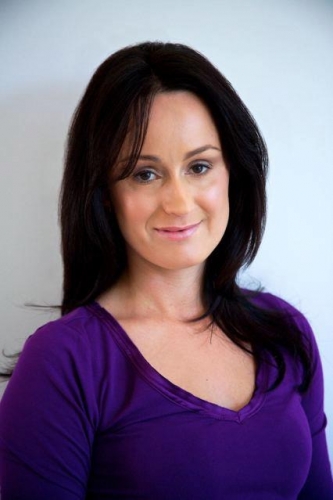Animal-assisted therapy is accessible in a variety of allied health sectors, but in occupational therapy, Henry – a miniature dachshund – has a hands (paws)-on role in assisting patients through the rehabilitation process.
Animal-assisted therapy in occupational therapy works to achieve goals through the involvement of animals and is reliant on the human-animal bond, explained
Lauren Gordon, an occupational therapist and Queensland board member for Animal Therapies Australia.
Subscribe for FREE to the HealthTimes magazine
"Using animal-assisted therapy would not be useful if you did not have an interest in dogs. It's not simply patting a dog; however, this can be useful in some therapy sessions," said Ms Gordon.
Instead, Henry helps Ms Gordon's patients to recover by being an active part of their rehabilitation.
"If you had a shoulder reconstruction and it was recommended that you complete a particular exercise for rehabilitation, we would incorporate games with Henry such as throwing him the ball - overarm or underarm - to make the sessions more purposeful and functional."
Ms Gordon said she first became interested in animal therapy when she moved to Townsville and survived cyclone Yasi with her rescue dog, Tad.
"When I got up there and got settled, I noticed that he was my primary motivation for leaving the house, and it was good motivation for initiating social interaction with others.
"We would exercise together, and when I felt like I had no one, I always knew that I had Tad.
"We have been through a lot together, including cyclone Yasi where we were stuck inside for two days.
"He was very in tune with my emotions and would move closer to me and try to sit on my lap when I was upset, and he would always make me happy when I returned home from having a bad day.
"So that started me thinking about the impact a dog could have on people with mental illness or who had suffered physical injuries.
"I ended up doing most of my assignments and research through university on animal-assisted therapy and knew that I would find a way to incorporate this into my practice."
When Ms Gordon returned to her hometown of Brisbane, she adopted Henry as a companion for Tad.
"I noticed that Henry had a nice temperament. He didn't bark much, he listened (most of the time), he loved people, and everyone seemed to love him and notice him because he was different.
"Henry has always been confident, so I thought I would trial him in a course to become a therapy dog."
Henry receives positive reinforcement training, a force-free style of schooling, which includes a five-day intensive course to learn how to work as a clinical team.
"He passed in a class full of labradors, labradoodles, golden retrievers - and he continues to pass his annual reassessment.
"Henry helps my clients feel comfortable and encourages participation in sessions."
Ms Gordon said clients of all ages benefit from the novelty of working with Henry.
"If a person has a physical injury or disability, they can throw the ball to Henry rather than doing the same motion in a meaningless exercise.
"Having a meaningful and purposeful activity can have such a profound impact on a person in achieving success."
Henry also has a role to play in mental health, said Ms Gordon, as he is small enough to sit on a client's lap and provide weight through their body to induce a sense of calm.
"When a person is calm and present, we can have important discussions around developing strategies to assist in anxiety, depression, psychosis, or regulating emotions."
Henry has had a positive impact on many clients, explained Ms Gordon, but a lady who overcame agoraphobia to go to the shops unassisted is the most memorable.
"We worked at her pace, built rapport and worked around her confidence.
"One day she told me that she was ready to go to the shops, so we planned to meet in the shopping centre car park.
"We did this many times, increasing the activity each time to walking up to the crossing, walking around outside the shops until the day came when she walked inside by herself and returned.
"The lady now attends doctor's appointments as needed, and the shops are no longer a problem.
"This has improved her quality of life to the point where she is happy, so our job there was done."
Ms Gordon strongly recommends other allied health professionals incorporate animal-assisted therapy.
"It's a great ice breaker at the beginning of a session, a great distraction when the session becomes too much for the client, and it can create purposeful and meaningful opportunities for activities, which is what our discipline is all about.
"Ensure you have a dog with good temperament and willing to engage with lots of people throughout the day. Always know what signs to look for if your dog is uncomfortable when working.
"Animal-assisted therapy currently does not require certification or registration, but please be responsible and only take a dog to your workplace if trained by a reputable therapy dog training organisation."













